About control, controllability and fate
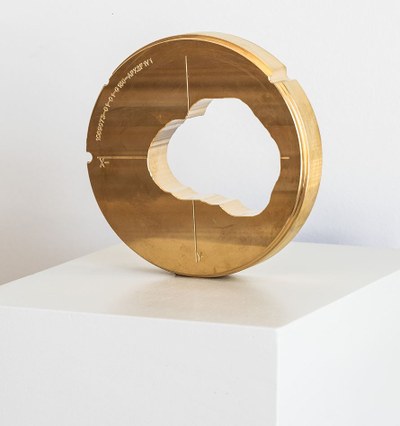
In her artistic works, Julia Schmelzer is particularly concerned with transformations and fictions that influence and reshape our "futures". In her film on modern cancer medicine and research, made at the NCT/UCC, she interweaves documentary elements with speculative poetic moments. Shots of examination equipment, the university tissue bank and laboratories alternate with microbiological and organic details. To her own footage she adds macro shots, for example of dust particles. The camera takes a lot of time, the cuts merge into one another, so that the individual shots form a serial sequence. The film itself is carried by a sound tapestry of gamma waves, noise and vocals from Gregorio Allegri's "Miserere mei, Deus," which Schmelzer has combined into an ethereal sound collage. Under the title "Domestication," she undertakes an attempt from an artistic perspective to look at the disease of cancer and its highly complex treatment options from different angles, without leaving a neutral standpoint. Her film essay is dominated by images and impressions that analyze the relationship between organism, human, machine and technology.
In her second work, a replica of a proton aperture produced by computer-controlled milling machines, the present absence of the human is also palpable. The custom-made device for highly effective irradiation using protons precisely encompasses the extent of the tumor to be treated. As its negative form, this sculptural artifact is also an aesthetic materialization. In the archive of the proton therapy facility there are thus countless of these apertures, all of which can be assigned to one patient. The outlines of the brass aperture tell of the individual patient's history and also the history of this therapeutic approach, in which research is constantly being conducted into new ways of making the treatment as precise and effective as possible.

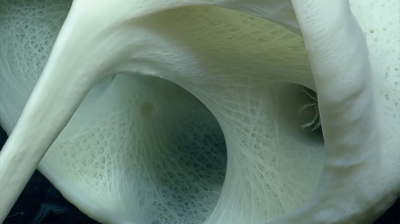
Video "Domestication"
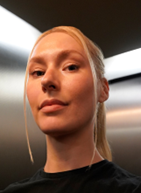
Julia Schmelzer (*1988 in Dresden, lives and works in Dresden) is a master student of Prof. Carsten Nicolai at the Dresden University of Fine Arts, where she also received her diploma. The installation and video artist is also active as a curator and has already conceived various exhibitions and international formats, in particular digital ones, and is also a co-founder of the PYLON platform for time-based media.
Project partners:
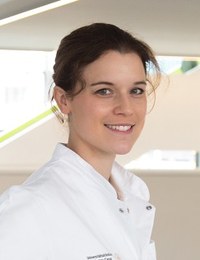
PD Dr. Cornelia Link-Rachner – Tumor immunology for risk assessment
Group Immune-based Diagnostics in Oncology, Mildred Scheel Early Career Center (MSNZ)
Using state-of-the-art, so-called next-generation sequencing (NGS) methods, the researchers are analyzing how characteristics of certain immune cells change in patients after stem cell transplantation. The transfer of blood stem cells from a donor is used to treat certain leukemias and some malignant lymphomas. This can result in a graft-versus-host reaction, in which the donor's immune cells recognize the recipient's tissue as foreign and attack it. Certain immunological changes could help to predict the risk of such a complication more accurately and to use the knowledge gained in the treatment of those affected.
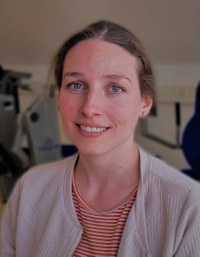
Nadine Giesemann – Promotion of a healthy lifestyle
Prevention Center, NCT/UCC Dresden
Around one third of all new cancer cases in Germany can be attributed to risk factors such as smoking, unhealthy eating habits, obesity and lack of exercise - and are therefore preventable. Excessive unprotected exposure to the sun (UV radiation) is also one of them. The NCT/UCC Prevention Center develops and disseminates nationwide sun protection programs, especially for schools and daycare centers. However, a healthy lifestyle can also improve quality of life as well as physical functioning during and after cancer. For patients with cancer, the center therefore offers various courses and other support services in the areas of exercise and nutrition.


